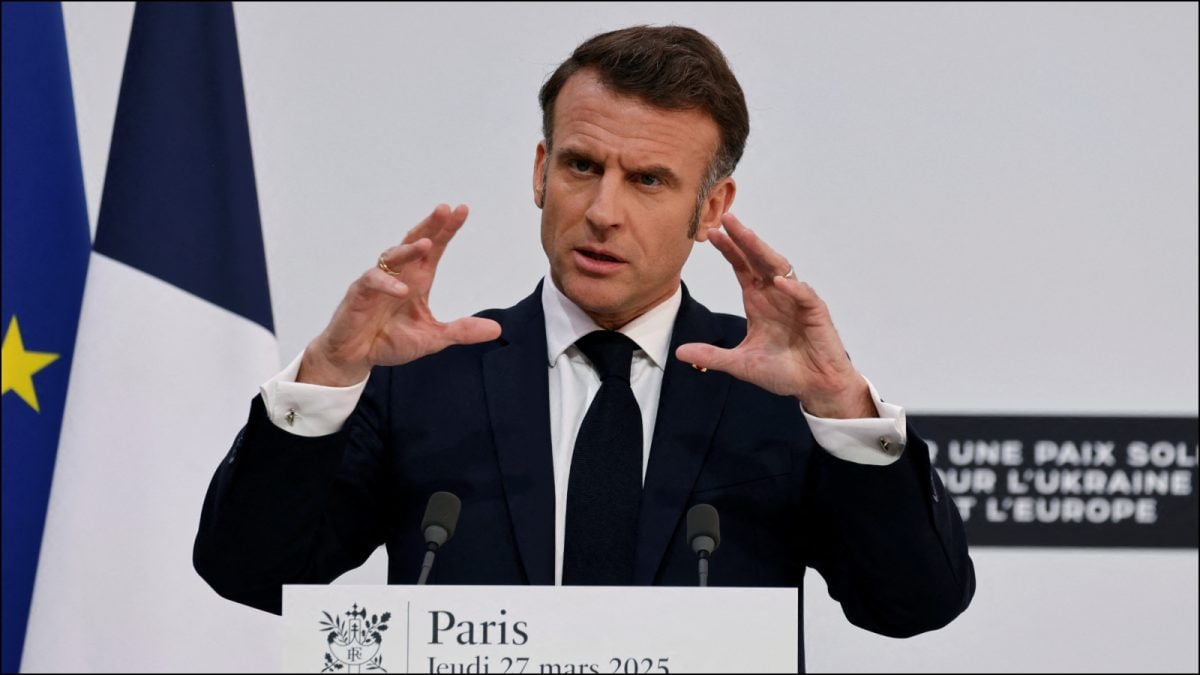Last Updated:April 09, 2025, 18:42 IST
US-China Trade War: The two countries have been involved in a game of tit-for-tat on trade with imposing tariffs on each other.

Ties between Donald Trump and Chinese President Xi Jinping became frosty after the former slapped heavy tariffs on Chinese imports. (File)
US-China Tariff War: The sweeping tariffs imposed by US President Donald Trump, followed by counter-tariffs by China, have plunged global markets into turmoil and escalated a global trade war.
Beijing on Wednesday imposed 84% tariff on US goods in a retaliatory move against US’ additional 50% tariff, a net total of sweeping 104% tariff on all Chinese goods, which were announced a day earlier.
The announcement means China has increased its intended levy on US imports by another 50 percentage points from the initial amount that was set to take effect on Thursday, matching the additional charge that US President Donald Trump has already imposed on Chinese goods. Trump’s higher import tax rates on dozens of countries and territories came into effect on Wednesday midnight. China was the hardest-hit nation with a levy of at least 104% on all its goods.
The two countries have been involved in a game of tit-for-tat on trade. Both sides have hardened their positions and sharpened their tools. While, Trump is invoking “America First" and wielding tariffs like a political cudgel, his Chinese counterpart stands firmly against each new tariff introduced by Washington.
China Adds 6 US Entities To Unreliable Entity List
Additionally, Beijing announced to add six US entities, including, Shield AI, Inc., Sierra Nevada Corporation, Cyberlux Corporation, Edge Autonomy Operations LLC, Group W, and Hudson Technologies Co, to its unreliable entity list, effective from 12:01 am (local time) Thursday.
“China has always handled the unreliable entity list issue prudently, taking action only against a very small number of foreign entities that harm China’s national security," a spokesperson of the Chinese Commerce Ministry (MOFCOM) said as quoted by Global Times.
He further emphasised that foreign entities that are honest and law-abiding have no reason to be concerned. “The Chinese government continues to welcome enterprises from around the world to invest and operate in China, and is committed to providing a stable, fair, and predictable business environment for law-abiding foreign-invested enterprises in China," he added.
‘Great Time To Move Companies To The US’, Says Trump
Trump on Wednesday urged global companies to relocate operations to the United States, calling it a “GREAT time" to move in, just minutes after China retaliated with an 84% tariff on American goods.
In a post on his Truth Social platform, Trump said firms shifting into the US would enjoy “ZERO TARIFFS," near-instant energy approvals, and no red tape on environmental clearances.
“This is a GREAT time to move your COMPANY into the United States of America, like Apple, and so many others, in record numbers, are doing. ZERO TARIFFS, and almost immediate Electrical/Energy hook ups and approvals. No Environmental Delays. DON’T WAIT, DO IT NOW!" he said.
Stock Markets Tumble
As investors struggle to understand the impact of Trump’s trade war, global stock markets tumbled sharply on Wednesday after China’s retaliatory move.
The FTSE 100 plunged 3.4%, while the pan-European Stoxx 600 fell 4.2%, reflecting widespread investor anxiety. Germany’s DAX and France’s CAC 40 also both dropped 3.4%
US stocks also dove further on Tuesday after an early gain of 4.1%. The S&P 500 lost 3% before paring its drop to 1.6% which left the index nearly 19% below its record set in February. The Dow Jones Industrial Average lost 320 points, or 0.8%, after erasing an earlier surge of 1,460 points, while the Nasdaq composite dropped 2.1%.
US-China Tariff War- From 10% To 104%
The US had been imposing a 10 percent tariff on China until last month. President Trump claimed that this policy “robbed and ripped off" the US economy of billions of dollars, as Beijing, labeled a “tariff abuser," imposed much higher tariffs on US goods.
On April 2, the US President announced his “reciprocal tariff" move – wherein the US would charge other countries roughly half the tariff that nation charged the US. He imposed a 10% global tariff on hundreds of countries and promised far steeper “reciprocal" tariffs on April 9 for nations that he maintains have “ripped off" America. For China this was an additional 34%.
In a tit-for-tat move, the China Finance Ministry had announced that it would be slapping an additional 34% tariff on all US goods.
Further, Trump threatened to impose even steeper tariffs on Beijing if it fails to revoke its 34% retaliatory duties. He had also given China one day to undo its retaliatory move and had said that the additional 50% tariff would be applicable from April 9 if the deadline is not met.
In response, China said it won’t be intimidated by “tariff blackmail", adding that the US imposed tariffs for unfounded reasons.
Later on Wednesday, Trump’s tariffs of 104% went into effect on Chinese exports to the US.
War Of Words
On Monday, Trump slammed China for ignoring previous warnings against issuing retaliatory tariffs, saying that any action would be met with “immediate and substantially higher" tariffs. He had also said all talks with China will be terminated and negotiations will be done with other countries instead.
However, China accused the US of “blackmailing" Beijing with the renewed tariff threat, saying it was making “a mistake on top of a mistake". China said it is fully prepared to counter Washington’s tariffs, saying that it has continued to develop and progress since the first trade war with the US during Trump’s first term.
China Turns To India
While China continues to resist US tariffs, it has also turned to India to “stand together" in overcoming difficulties.
Yu Jing, the spokesperson of the Chinese embassy in India, on Tuesday said that China’s economy was underpinned by a system that ensures steady growth and the country is a strong defender of economic globalisation and multilateralism, contributing to 30% of global growth on average.
“China-India economic and trade relationship is based on complementarity and mutual benefit. Facing the US abuse of tariffs, which deprives countries, especially Global South countries, of their right to development, the two largest developing countries should stand together to overcome the difficulties," she had said in a statement.
What Experts Say?
Craig Singleton, senior fellow at the Foundation for Defense of Democracies, told Bloomberg that both the leaders are locked in a paradox of pressure and pride. “Trump and Xi are locked in a paradox of pressure and pride. If Xi refuses to engage, the pressure escalates. If he engages too soon, he risks looking weak," he said.
Henry Gao, law professor at Singapore Management University, told Bloomberg, “China wants to convey to the US that it is not intimidated. Rather than aiming to inflict significant damage, the goal seems to be to exert pressure and encourage dialogue."
(With inputs from agencies)
Location :Washington D.C., United States of America (USA)
First Published:April 09, 2025, 18:42 IST
News world US-China Trade War: Beijing Retaliates With 84% Tariffs, Trump Urges Companies To Move To America | Top Points

 1 month ago
1 month ago

















